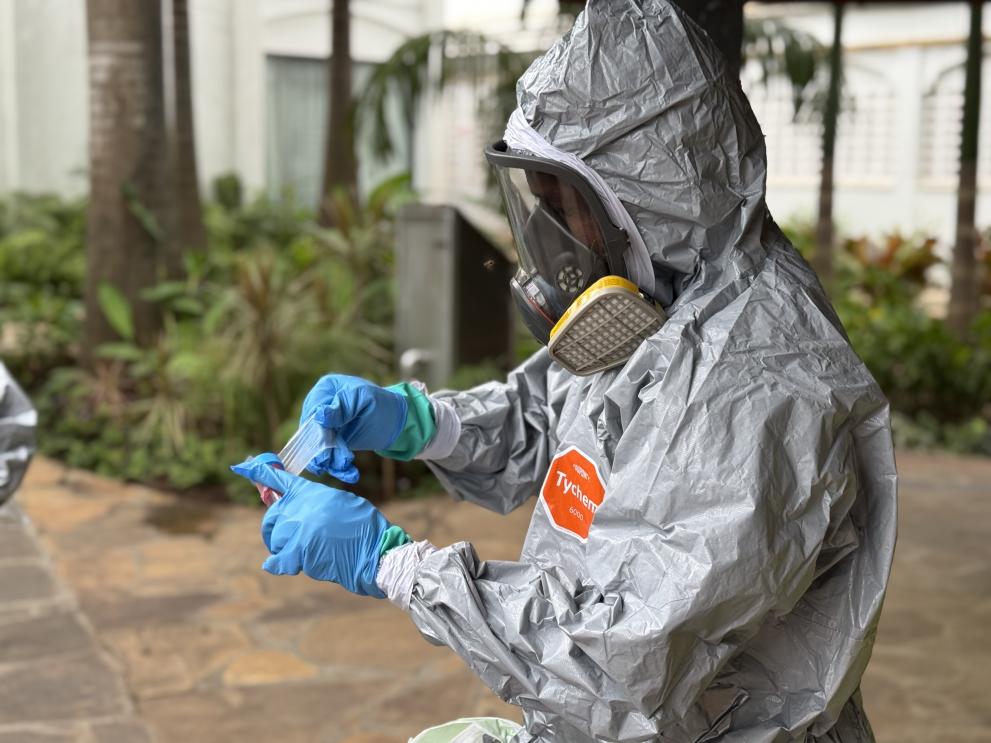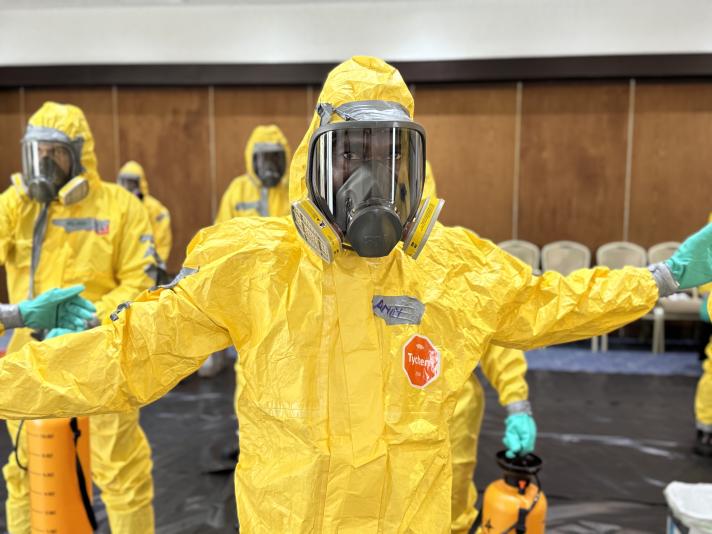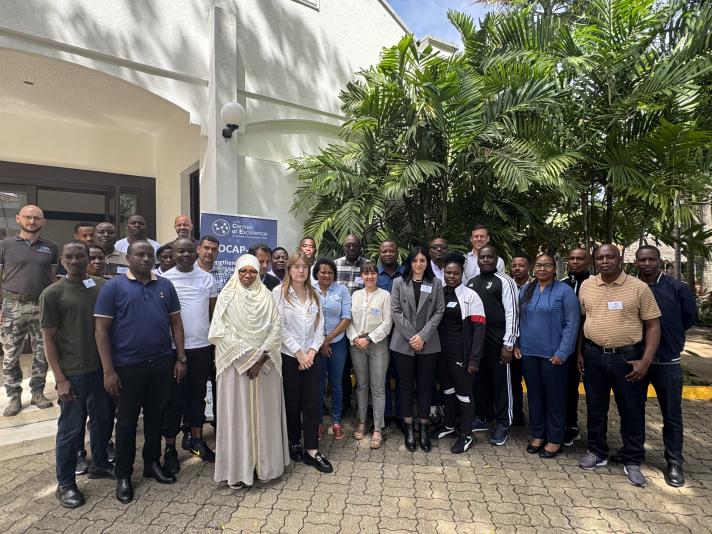
Amid growing global concern over the weaponisation of dangerous biological agents, the need for strenghtened biosecurity measures at border points is increasingly urgent. While pathogens and biotoxins have legitimate applications in medical and agricultural research, their potential to cause mass harm is significant if illicitly transported or intentionally released makes them a serious regional and global threat.
In regions with porous borders and diverse health security capabilities, the impact of a biological incident could be devastating, not only to public health but also to trade, tourism, and cross-border trust.
In response, the European Union is helping to equip border personnel with practical tools, technical knowledge, and coordination mechanisms to detect and mitigate these risks at points of entry. Hands-on exercises and practical drills took centre stage in Mombasa on 26-30 May 2025, with a regional workshop on "Biological Hazard Smuggling through Border Crossing Points".
A regional and practical response
Held under the EU CBRN Centres of Excellence, the workshop brought together 22 national security, law enforcement agencies and border frontline officers from 11 partner countries across East and Central Africa.
Unlike traditional classroom-based sessions, this workshop was designed around scenario-based simulations, technical demonstrations, and guided hands-on practice. Officers participated in crime scene investigations involving suspected biological agents, learned correct procedures for donning and doffing personal protective equipment (PPE), and practiced decontamination, sampling, and chain-of-custody protocols for evidence collection.
The sessions also addressed the identification of dual-use items, profiling of suspicious behaviour at ports of entry, and application of international law related to high-risk biological substances. These included an introduction to dual-use export control regulations and best practices for managing suspected smuggling cases.
“Detecting and responding to biotoxin smuggling, especially threats like Abrin, requires more than equipment: it demands precision, coordination, and constant readiness,” said Marian Kolončík, President of ISEMI and lead trainer for the workshop. “This practical training workshop ensures that frontline officers are not only trained but truly prepared to respond decisively under pressure and adhere to the right standard operating procedures.”
“These threats don’t stop at our borders”
Discover the workshop photo gallery
Voices from the field
For many, the value of the workshop lay in its regional approach. “These threats don’t stop at our borders,” said Captain Farida Kiza of Uganda’s CBRN Defence Unit. “Combined drills and cross-border coordination are vital. This workshop allows us to share knowledge and improve how we collectively respond to incidents.”
Fiston Masikini Bombamu, Head of Risk Management at the DRC’s CBRN coordination office, echoed this sentiment: “The risk is real. In the DRC, we’ve faced outbreaks like Ebola and, of course, COVID-19. Strengthening regional ties and improving awareness among our border forces is essential for early detection and prevention.”
“We suited up, carried out drills, and experienced what a real biosecurity incident could feel like.”
Participants also praised the practical, immersive nature of the training. “It wasn’t just lectures. We suited up, carried out drills, and experienced what a real biosecurity incident could feel like. This is the kind of training that sticks - and that we can replicate back home,” noted Mumbi Mutale, Zambia’s national focal point for BIOCAP-ECA.
Beyond technical skills, the workshop also fostered interagency and international cooperation. “By getting these countries in one room, we not only build capacity, we also build trust,” noted Joris Sprokholt, BIOCAP-ECA Key Expert. “This is critical for any cross-border threat that requires swift and coordinated response.”
Discover the workshop photo gallery
About the BIOCAP-ECA project
The regional workshop on “Biological Hazard Sumggling through Border Crossing Points was organised under BIOCAP-ECA (EU CBRN CoE Project 99), as part of the EU CBRN Centres of Excellence.
The project supports 11 partner countries from East and Central Africa - Burundi, DRC, Ethiopia, Ghana, Kenya, Malawi, Rwanda, Seychelles, Tanzania, Uganda, and Zambia - in addressing risks associated with chemical, biological, radiological, and nuclear materials and agents.
Running until June 2026, BIOCAP-ECA promotes national preparedness through legal and policy gap analyses, risk assessments, and stakeholder training. It also strengthens response systems and fosters cooperation between national agencies.
The project is implemented by a consortium led by Expertise France, and comprised of Liège University, RIVM, SCJS Europe and ISEM Institute. To learn more about the project, please visit the CoE Project 99
Details
- Publication date
- 5 June 2025
- Authors
- Service for Foreign Policy Instruments | Joint Research Centre
- CBRN areas
- Bio-safety/bio-security
- Border control and monitoring
- Crisis management
- Denying support for misuse and terrorism
- First response
- Post incident recovery
- Public health impact mitigation
- Safety and security
- CBRN categories
- Biological
- CoE Region
- ECA - Eastern and Central Africa



